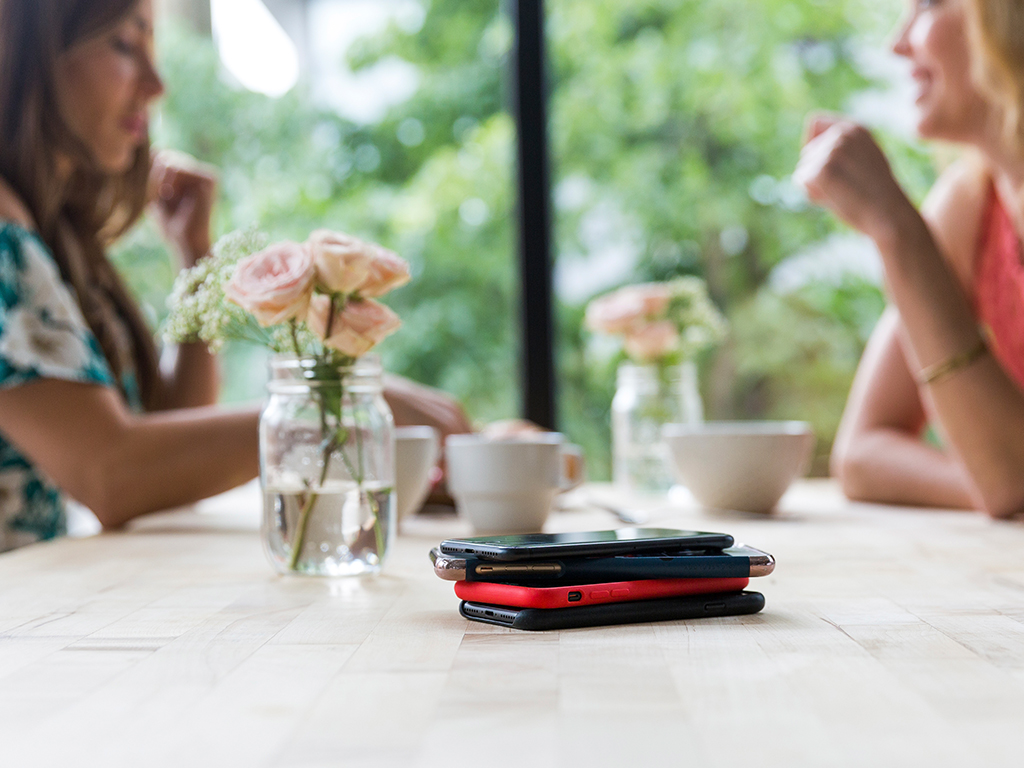Jason Strachan’s stint on Instagram lasted about a month.

“I was getting a tattoo, and Instagram was the only way to really see tattoo artists’ portfolios,” he told Global News.
The 30-year-old Toronto resident made an account on the social media app and started browsing the profiles of local tattoo parlours.
WATCH BELOW: How does using social media affect our mental health?

But on the page of one Toronto shop, he came across an image and caption he found offensive. Instead of commenting on the post and potentially getting into an online argument, Strachan decided to deactivate his account.
“Action is more important than words to me,” he said. “My action was I just don’t want to be on this social media platform where I can give someone my energy and let someone actually affect me.”
“I didn’t want that anymore so I deleted it.”
Canadians are very active on social media — but should we be?
- Canada’s income gap is growing. Will Budget 2024 help affordability?
- Shoppers faces proposed class action over claims company is ‘abusive’ to pharmacists
- Gas prices in Ontario, Quebec to jump to highest level in 2 years: analyst
- Ontario premier calls cost of gas ‘absolutely disgusting,’ raises price-gouging concerns
In addition to deleting Instagram, Strachan also got rid of his Facebook account years ago and doesn’t have a Twitter handle, either. Not having any social media presence makes him a bit of a unicorn in today’s tech-obsessed society, according to research.
A recent report out of Ryerson University found that 94 per cent of adult Canadian internet users have at least one social media account. Facebook is the most popular, as 84 per cent of social media users have profiles on the site.
READ MORE: Movember makes men care about health, but how to keep the momentum year-round?
Strachan said he knows he’s one of the few people his age who aren’t active online, but he prefers it that way.
Getting offline can benefit your mental health
For Shaundell Fougere, 34, getting off social media also had a positive impact on her mental well-being. The executive assistant recently deleted her Instagram account for a second time and has been off Facebook for a couple years.
She said social media, especially Instagram, allows people to portray a life that is not based on reality.
WATCH BELOW: Dating apps may be harming your mental health

“Someone will post a picture that, to you, might look perfect, but what you don’t see is that they may have taken 100 photos before the one they posted,” she told Global News. “My issue with that is it makes people feel like they have to live up to these things that aren’t even real.”
Dr. Maneet Bhatia, a clinical psychologist in Toronto, said that social media can make users feel inadequate compared to what they see online. This can be harmful, as it can lead to feelings of depression and isolation.
“It creates a sense of disconnect with our psychological well-being because we see everybody else post their best pictures, their best life,” he said. “If you’re a person sitting on social media and think, ‘Wow, my friends look so happy, and I’m struggling’ … it creates social comparison and it can affect your self-esteem.”
Social media can be addictive
Apart from harming your mental health, social media can take up a lot of time.
Carmen Puopolo, 29, said he got off social media because he didn’t like how time-consuming it could be. He said he was active on Facebook seven or eight years ago but later decided the site wasn’t for him. Since deleting his account, Puopolo said he has more free time for in-person interactions.
READ MORE: Getting married isn’t a requirement, so why do people feel pressure to do it?
Bhatia said that overusing social media is a real problem, and people can develop an unhealthy dependency on their phones. This can have a detrimental affect on their ability to interact in-person.
“One of the most obvious issues with social media is even though it gives the illusion that we are connected, it’s actually making us less connected in a way that’s healthy for us,” he explained.
“When people are actually engaging in social media, it displaces more authentic social experiences. When you’re spending more time online, you’re not spending as much time face-to-face… and that can impact your ability to socialize.”
Of course being off social media can also affect your social life. In an age where people use Facebook to invite friends to events, not having an account can mean getting left out.
WATCH BELOW: This is how much you actually use Instagram

“There’s definitely been times where I’ve missed birthday parties,” Fougere said. “I specifically remember missing a baby shower, and someone was like, ‘Oh, well, you’re not on Facebook so I totally forgot.'”
Strachan has had similar experiences. He said he sometimes gets left out of plans and doesn’t always get invites to events that are created online.
But, if people really want to get in touch with him, Strachan said they can phone or email him.
“Is it really that hard to keep a number in a phone book? My number hasn’t changed in eight years so if you really wanted to contact me, I’d pick up the phone,” he said.
“But, in reality, a lot of people don’t want to take that extra step, and that’s a way of filtering out people who don’t want to keep a connection alive.”
Laura.Hensley@globalnews.ca




Comments